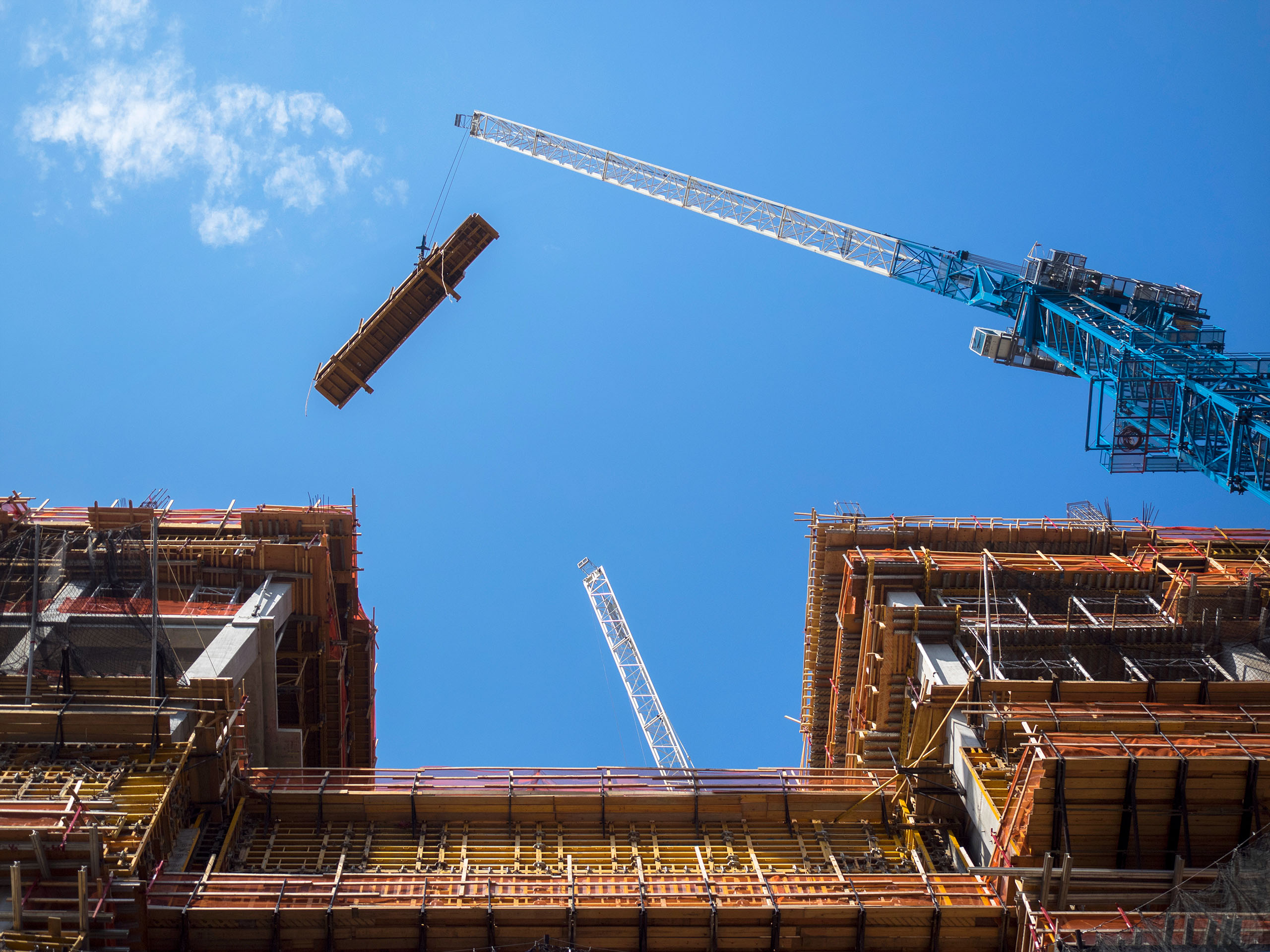Specialty Podcast: Every 12 Minutes - The Urgency of Suicide Prevention in Construction
By Alliant Specialty / September 22, 2025
Suicide and mental health challenges remain critical yet often overlooked issues in the construction industry, with suicide rates significantly higher than in other professions. Join Eli Mendoza and John Murphy, Alliant Construction, as they discuss the factors driving this crisis, recent statistics and how to overcome the stigma surrounding mental health in construction. Their conversation explores prevention and post-prevention strategies, available resources and how Alliant works alongside clients to raise awareness and implement meaningful support programs.
Intro (00:00):
You are listening to the Alliant Specialty Podcast, dedicated to insurance and risk management solutions and trends shaping the market today.
Eli Mendoza (00:09):
Hello everyone. Welcome back to another Alliant Specialty podcast. I am Eli Mendoza, your host, and our special guest is John Murphy. Together, we lead the construction service group loss control team. I'm on the west coast, he's on the east coast. Welcome, John.
John Murphy (00:28):
Thank you very much. It's always a pleasure talking to you, Eli.
Eli Mendoza (00:31):
Thank you. John is joining us today to talk about a very important topic, construction suicide and mental health in construction. It's one that is very important, and one that as I've learned through the conversations with John, one that we don't have enough awareness about. So because of that, want to start off with a little bit about the history of construction suicide and mental health. John, historically, construction worker mental health and suicides are not typical subjects that safety professionals or loss control representatives get involved with. So what is it that triggered your involvement regarding this subject?
John Murphy (01:08):
It was about 3.5 years ago. It was late in the week, and I had a client call me up asking if we had resources for grief counselors to visit a job, upstate New York, as a result of a construction worker committing suicide. As you know, that's not a question that we receive very often. As a matter of fact, it was the first time I ever experienced a call like that. We were able to come up with grief counseling resources as a scramble and the client was happy with the services they did select, but it did make me wonder what would occur if this happened again. I didn't like the reactive feel of not having the resources, so I began to research into the subject specifically of construction worker suicide.
Eli Mendoza (02:00):
Thank you, John. Listening to your story, it makes me think back at my earlier career, and your message resonates, where we did experience some suicides in construction, but now with this conversation that we're having, I agree with you. I don't feel like we were giving it the importance or recognizing it as a topic that was worth discussing on a regular basis with our construction partners. What are the most recent construction worker suicide statistics?
John Murphy (02:34):
There's a lot out there, but according to the CDC, the construction industry is one of five others that has five times the suicide rate of any other industry. Another article I read, in 2022, there was reported 6,000 suicides within our industry and death by suicide is five times higher than every other construction fatality. The best statistic that I came across, really gets your attention, is one construction worker commits suicide every 12 minutes nationwide.
Eli Mendoza (03:14):
That is astronomical. Listening to those numbers, and I'm sure that there's plenty others that are out there, it literally gets me to feel emotional. Understanding and listening to this really opens my eyes to why we really need to push this topic a lot more frequently. In construction, we tend to spend a lot of time working around the focus four topics, the ones that lead the most fatalities and serious injuries within the construction space per OSHA statistics. However, I don't recall those numbers approaching or getting close to the ones that you just shared with us, John. What are the factors that dramatically cause this higher suicide rate when compared to other industries?
John Murphy (04:05):
The construction industry, there's a plethora of reasons that are out there, but the general consensus that I can see from the research I've done was you could pretty much narrow it down to top four. First one being job related stress. Construction is demanding work, long hours, tight deadlines. It's a physically strenuous job in itself, and those things alone can certainly lead to anxiety and depression. You know the topic of mental health, study that was done, it was through the National Academy of Engineering and they did a poll on construction work, and they found that 83% of construction workers struggle with some form of mental health issues. Job insecurity. Construction work often involves seasonal employment and frequent layoffs, which of course leads to job insecurity and possible financial strain. Probably would come as no surprise, substance abuse plays a role. Another statistic, construction industry has two times higher rate of substance abuse than every other industry. The stigma around mental health, particularly in the construction industry, which is tough guy, cultural industry, so many individuals are fearful of sharing their issues. I think one survey in particular that was really an eye-opener was done in 2021, roughly over a thousand construction workers. Based upon this survey, 78% stated that they would not seek help because of the shame and stigma attached to depression, anxiety. Furthermore, just as alarming, 46% said they didn't even know how to access help if they wanted to.
Eli Mendoza (05:58):
John, I don't know how to proceed with talking about mental health knowing that there's just so much to it. These factors that you just mentioned, the stress, the instability, the substance abuse, the stigma, these are valid, they're recognized, and they're proven through the studies that are now taking place for our construction partners. This gets me going back to where we started where we really need to focus in on this. I feel like we're just peeling the first layer off of this onion and really need to invest time into the well-being of our partners, employees and finding a way to provide resources to help these individuals. What resources are available specifically for the construction industry?
John Murphy (06:52):
When we talk about resources, two different types. We have prevention and post-prevention. To start with the prevention resources, I can tell you that it's vastly improved over the short time that I've been involved in this research, this last three to four years. To name a few, of course there's information available on the OSHA website, OSHA.gov. The Association of General Contractors of America, otherwise known as the AGC, has quite a bit of information available on their website. Someone that helped me tremendously in research, I'd be remiss not to mention her, is Dr. Sally Spencer-Thomas. She's the president and co-founder of the United Suicide Survivors International. She's another fantastic resource that I have to add, is consultants specifically to the construction industry. As far as post-prevention goes, the resources would be from grief counseling. There's a few that are available. I would like to mention one of three, mental health wellness counselor. Matter of fact, it came to my attention recently that one client set up a system through this organization, they developed for a 30-day period, a 24/7 hotline. If any construction worker wanted to call privately, anonymously, they had the way to do so. Stigma, fear attached to someone on a job site. I can speak for New York alone, we currently have seven resources available should any of our New York clients require grief counseling.
Eli Mendoza (08:37):
Thank you, John. For those of you that might be in other areas, reach out to your network. This includes us, your broker, carriers, employers, family. I think a lot of times we forget that that immediate network that we have is there to support us, assist us and not judge us. A simple search on the web for mental health support, construction mental health resources, will give you a long list of free resources to other public and private organizations that are available to support anyone. John, what can our clients do, and how can Alliant help?
John Murphy (09:21):
If we stick with separating prevention and post-prevention and start with prevention, I think the first step a client has to do is acknowledge that this is certainly a very serious issue within our industry and then develop steps with programs perhaps on prevention. Part of that would be certainly raising company-wide awareness, training and utilizing those resources. As far as the post-prevention goes, certainly not to be scrambling at the worst time to find grief counseling services, to be in front of it and have a list ready, gosh forbid something happen. Far as our role as broker, I can tell you that we have in New York, provided at least three safety seminars regarding the subject matter of construction suicide. Two, I'll call open forums where we invited all of our clients that were willing to attend and listen in on the subject matter. We’ve actually gone to clients' offices privately and conducted awareness training on this subject. That's certainly something that we can help with as well as share the resources that we have discovered along the way.
Eli Mendoza (10:42):
Thank you, John. I agree with your entire message. Prevention and creating awareness to lead that cause is extremely important. We've supported our clients with program development around this topic, as you mentioned, training, providing resources, internal and external, and that is the way to push this initiative forward. Reach out to Alliant, your contacts, your loss control representative if you need additional support or assistance. I want to thank you, John, immensely for bringing this to our attention. I want to thank everybody for listening, and for more information, visit our website at www.Alliant.com. Thank you.
John Murphy (11:26):
Thank you, Eli.
Alliant note and disclaimer: This document is designed to provide general information and guidance. Please note that prior to implementation your legal counsel should review all details or policy information. Alliant Insurance Services does not provide legal advice or legal opinions. If a legal opinion is needed, please seek the services of your own legal advisor or ask Alliant Insurance Services for a referral. This document is provided on an “as is” basis without any warranty of any kind. Alliant Insurance Services disclaims any liability for any loss or damage from reliance on this document.
Thanks for your message.
We’ll be in touch shortly
News & Resources




